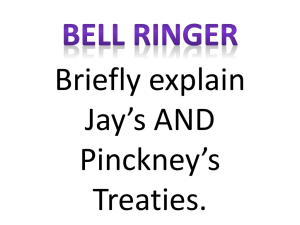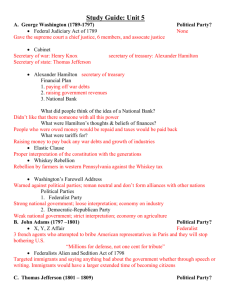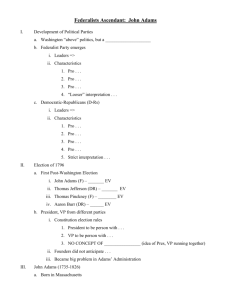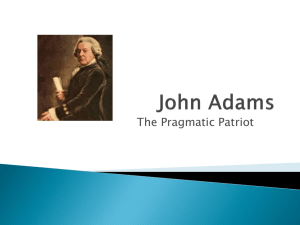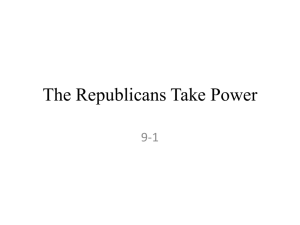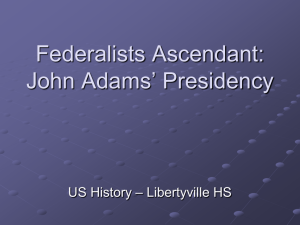Early Republic Notes
advertisement
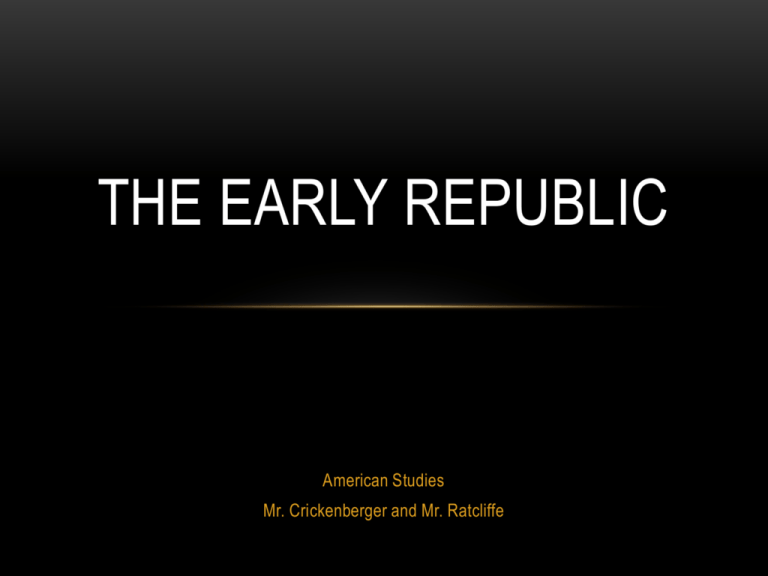
THE EARLY REPUBLIC American Studies Mr. Crickenberger and Mr. Ratcliffe DEVELOPMENT OF POLITICAL PARTIES • Washington was “above” politics, but still considered himself a Federalist • Federalist party led by John Adams and Alexander Hamilton • Characteristics • Pro industrial development • Pro British • Pro strong federal government • Supported by bankers and business interests in the North Prominent Federalists DEVELOPMENT OF POLITICAL PARTIES • Democratic-Republicans led by Thomas Jefferson and James Madison • Characteristics • Pro agriculture • Pro revolutionary France • Pro “common” man • Pro States rights (vs. strong central government) • Supported by farmers, artisans, and frontiersmen in the South JOHN ADAMS – FOREIGN POLICY • Continued neutrality that Washington had imposed • Adams wanted to stay out of war between Britain and France, despite many Americans supporting one of the two countries • However, many of his actions, such as the Alien and Sedition Acts, made Adams appear to show favoritism towards the British ELECTION OF 1800 • Between John Adams and Thomas Jefferson • Extremely confrontational campaigns by the candidates – Adams and Jefferson’s friendship will suffer for several years after • In the end, Jefferson and the Democratic Republicans win the election • This is the first American presidential election in which power was peacefully transferred from one party to another. IMPORTANT EARLY SUPREME COURT CASES • Chief Justice John Marshall presided over both cases • Marbury v. Madison established “judicial review”, which established the power of the Supreme Court to declare laws unconstitutional • The McCulloch v. Maryland ruling prohibited states from taxing agencies of the federal government • How else could we say this? • __________________________________________


